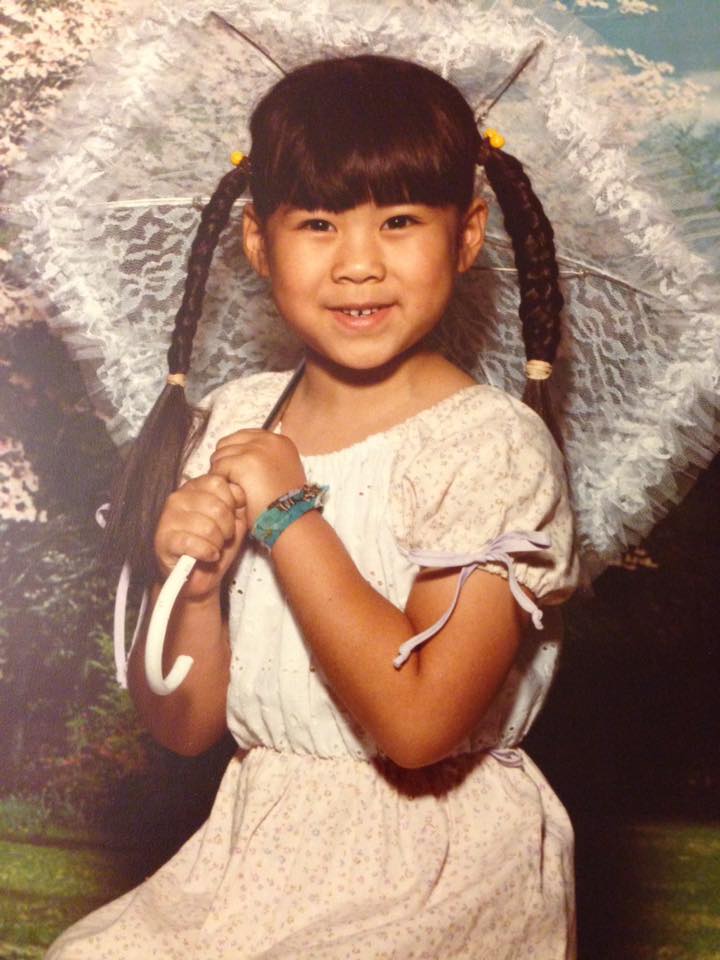It’s you I like,
It’s not the things you wear,
It’s not the way you do your hair
But it’s you I like
The way you are right now,
The way down deep inside you
Not the things that hide you,
Not your toys
They’re just beside you.
But it’s you I like
Every part of you.
Your skin, your eyes, your feelings
Whether old or new.
I hope that you’ll remember
Even when you’re feeling blue
That it’s you I like,
It’s you yourself
It’s you.
It’s you I like.
– Fred Rogers
The other night, as I was squeezing NoNo’s arm affectionately during our bedtime routine, I noticed how lean and wiry he was. Compared to his younger brother whose arms are still fleshy and hands still dimpled, I could wrap my hand around NoNo’s entire bicep. I was about to make a playful comment about how he was all skin and bones when I stopped short.
I thought of the times in my childhood when someone had made a passing remark about my body. I recalled the shame I experienced when someone made me aware of my inadequacies.
And I held my tongue.
As a child, I learned early on that everything about me was subject to evaluation—my body, my behavior, my abilities (or lack thereof).
“Let’s pull up that flat nose bridge of yours!”
“Looks like you’ve gained some weight.”
“Don’t be so shy.”
“Aiya, your Chinese is so bad!”
For a people who have a reputation for indirect communication, Chinese family members can be surprisingly blunt.
But it wasn’t just my family. In school, church, friendships, and society at large, I realized that I was always under the watchful, critical, evaluative gaze of the other.
It made me profoundly aware that I was not safe. I was being watched. Judged. Weighed on the scales… and found wanting.
It wasn’t just the criticisms either. The praise and compliments were just as insidious.
“Double-eyelids! Look at those big eyes!”
“You’re such a good girl for helping with the dishes…unlike your sister.”
“Iris is a very bright student.”
“Don’t you look pretty with those braids in your hair!”

Although the words were different, the reality was the same. I was being scrutinized. Appraised. Weighed on the scales and found acceptable… for now. All I had to do was maintain this image in order to gain approval.
I’m sure we can all relate to how a casual comment made a deep impression upon our psyche as a child; how a simple evaluation robbed us of our joy, made us self-conscious, and planted self-doubt. Regardless of how innocently these judgments were made, they caused us to censor and censure ourselves.
And yet we so easily do the same to our children, looking at our kids through eyes of assessment instead of acceptance.
As a parent, I really want to excise this evaluation from my relationship with my children. I want to remove any messages I might be sending that make them believe their worth is tied to their appearance, their attitude, their achievements.
Instead, I want them to know that they are unconditionally valuable and worthy, just as they are.
“Nothing you do could make me love you less. Nothing you do could make me love you more.”
We cannot necessarily protect our kids from the toxic scrutiny prevalent throughout society, especially in this age of social media. But we can refuse to participate in it within our homes. Especially while children are young and still forming their sense of who they are, we can create a safe space in our families where they can freely discover themselves without fear of judgment.
Here are 3 ways:
Be a Witness, Not a Judge
Sometimes, the best thing for us hypercritical tiger parents to do is just Shut. Our. Mouths.
Resist the urge to point out all the plot holes in their Minecraft story. Don’t mention the whopping 15 pounds your 8-year-old has gained. Hold back on critiquing their less than stellar performance on the court, stage, or exam.
Even with praise, it’s best to use minimally and mindfully. Any judgment, positive or negative, encourages our children to tie their self-worth to the opinions of others.
Instead of acting like a judge, simply be a witness. Observe your child. Look at them with eyes of wonder and discovery instead of expectation. There’s no need to share your views or valuations unless your child specifically requests feedback.
Inquire Rather Than Evaluate
Instead of always giving your opinion, ask your kids about theirs. “How did you feel about how piano lessons went?” “Which painting do YOU like best?” “Are you happy with how your project turned out?” “Do you like your haircut?”
Such curiosity keeps us from projecting our values upon our kids. It empowers them to self-reflect, self-evaluate, and take responsibility for what they have control over. They become more attuned to their own emotions, motivations, and agency instead of conforming themselves to accommodate us and others.
Offer Random Acts of Love
It’s easy enough to give positive attention when our kids perform what is expected of them or present themselves in ways that please us. But when we unconsciously limit our affection to those moments, it seems like our love is contingent on these circumstances.
Instead, throughout the day, we can randomly hug them, smile at them, and tell them we are proud of them, apart from anything they do. These affirmations communicate that we love them without conditions or strings attached.
“If we can allow our children to show up just as they are without having to jump through hoops to earn our approval, if we can show the same amount of love in proud moments and hard moments, perhaps we can raise a generation who isn’t constantly struggling for self-acceptance.” – Rebecca Eanes
As social creatures, our kids are naturally wired to look to others to help them gain a sense of who they are. What they see in our eyes matters.
I hope that when my children look into my eyes, they don’t wonder how they measure up, what they’re worth, or where they stand.
I hope they see reflected back to them this one truth: “It’s you I like.”

